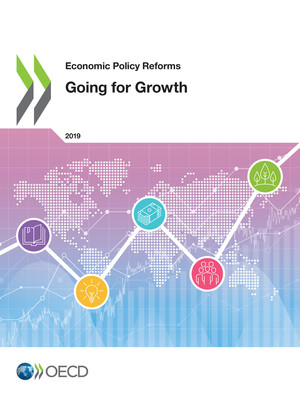copy the linklink copied!Brazil
The significant GDP per capita gap to the upper half of OECD countries has widened in recent years, mainly due to comparatively weak labour productivity performance and low employment rates.
Inequality remains high and progress in reducing it has slowed down. Greenhouse gas emissions are well below the OECD average in per capita terms.
Some progress has been made in reducing trade barriers, by limiting local content requirements in the oil and gas sector. An education reform has given schools more flexibility to adapt to students’ needs. A new central agency has been tasked with prioritising and monitoring infrastructure projects and a reduction in subsidised lending will enhance the scope for private participation in infrastructure financing.
A more educated workforce, better infrastructure and less tax distortions would support productivity improvements. Lowering trade barriers remains a priority for Brazil to increase exposure to international competition and strengthen incentives for productivity improvements. To reconcile the need for further reductions in income inequality with diminishing fiscal space, social expenditure should focus more on the most efficient policy instruments, particularly conditional cash transfers, at the expense of less efficient instruments. This would accelerate the decline of income inequality without increasing spending.
Brazil: Going for Growth 2019 priorities
Increase the effectiveness of social benefits. Shifting the focus of expenditures on social benefits could lead to faster reductions in income inequality.
-
Actions taken: A pension reform was planned for 2017 but was not passed by Congress. Benefit levels in the conditional cash transfer programme Bolsa Família saw a minor real increase in 2018, after years without significant real increases.
-
Recommendations: Redirect spending on social benefits towards conditional cash transfers to the poor, which is the most efficient instrument for reducing income inequality. Ensure the sustainability of the pension system through a wide-ranging pension reform. Sever the indexation of minimum pensions and social benefits to the minimum wage to avoid large real spending increases on benefits that reach households with above average incomes.
Enhance outcomes and equity in education. Improving education outcomes and equality of educational opportunities would accelerate productivity.
-
Actions taken: A 2017 education reform has given schools more flexibility in adapting curricula to the needs of their students. Vocational training programmes for low-skilled workers and scholarships for tertiary education are being expanded continuously.
-
Recommendations: Focus on improving the quality of education through better teacher pay, in-service training and stronger performance incentives. Ensure full-day schooling nationwide and build more schools where needed. Further expand tertiary vocational and professional training programmes to address skill shortages and reduce dropout rates.
Reduce barriers to trade. Trade barriers harm competitiveness by hampering access to imported intermediate and capital inputs and reduce competition.
-
Actions taken: Local content requirements in the oil and gas sector have been eased in 2017.
-
Recommendations: Reduce trade protection steadily by lowering tariffs and scaling back local content requirements, which remain high in international comparison.
Reduce distortions in the tax system. Less onerous and distortive indirect taxes would contribute to faster productivity gains by reducing tax compliance costs.
-
Actions taken: No action taken.
-
Recommendations: Consolidate indirect taxes at the state and federal levels and work towards one value added tax with a broad base, full refund for input VAT and zero-rating for exports.
Increase public and private investment in infrastructure. Addressing infrastructure gaps would lead to higher productivity growth and improve export competitiveness.
-
Actions taken: A 2017 investment partnership law has created a central entity attached to the presidency tasked with selecting and prioritising projects, and monitoring their implementation. Less subsidised lending resulting from a financial market reform will enhance the scope for private participation in infrastructure financing.
-
Recommendations: Improve the technical capacity and planning for infrastructure projects, including in local governments. Increase the independence of infrastructure regulators. Expand the range of financing models, including syndicated loans, structured financial instruments, project financing and infrastructure bonds. Make wider use of public-private partnerships and concessions, but in a transparent way, using standardised bidding documents and guidance manuals. Avoid local content requirements in infrastructure projects.
Metadata, Legal and Rights
https://doi.org/10.1787/aec5b059-en
© OECD 2019
The use of this work, whether digital or print, is governed by the Terms and Conditions to be found at http://www.oecd.org/termsandconditions.





